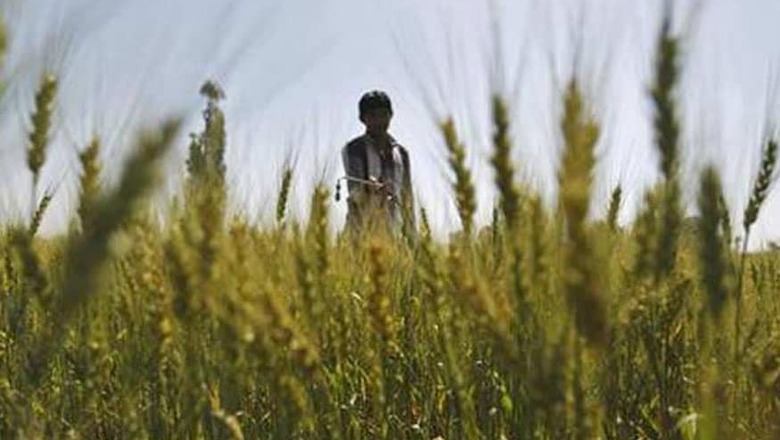
views
Dehradun/New Delhi: While the government has claimed that the prolonged winter spell in northern India might end up resulting in better yields, farmers across northern India admitted that they were perplexed over the weather conditions, which officials said would become only more common due to climate change.
Last week, Agriculture Commissioner S K Malhotra had said that India’s wheat production in the 2018-19 was likely to cross 100 million tonnes – an all time high due to the prolonged winter. "Wheat crops are in a good condition. Recent rains and prolonged winter season will prove to be a boon for the growth of wheat crop," Malhotra had told reporters on the sidelines of a FICCI conference on mint farming.
But this might just be one side of the story. With two more western disturbances, the 16th and the 17th this season, likely to bring more rainfall and chilly winds along with snowfall in the western Himalayas in the coming week, an official said, “Rainfall is not good for mustard, chana (chickpea) and potato crops. These are either in the late maturity state of the early periods of harvesting stage.”
The western disturbances are storms which at their centre have cold air and start from the Mediterranean region bringing in precipitation to north and northwestern India.
An official admitted that “the unusual intensity” of the WDs was resulting in conditions “that made it increasingly difficult to predict weather patterns”. As of now, northern India is seeing a prolonged winter, while parts of southern India is seeing a heat wave.
One of the most impacted by climate change, Uttarakhand farmers admitted that there have been clear changes in weather patterns with each passing year, as there has been a turn towards snow and rain following sunny days in the third week of January.
Ashish Vyas a farmer from Tehri Garhwal told News18 that owing to rains, the chilly weather has delayed germination of crops like onions, bottle gourd and ridged gourd. “It is evidently clear, delayed germination will mean late yield and ultimately a loss for us” he rued.
Another farmer from Dehradun, Suresh Pundeer said the wheat crop could be affected due to rains in March.
“This is the time when crop need comparatively a warm weather; else we will get a small wheat berry” added Pundeer.
Meanwhile, the metrological department, which has predicted more rains in the coming days, said the weather is ‘normal’ and it won’t affect the farming in a big way.
“The average rainfall in state is 160 mm this season. Some may find the prolonged rain and snow a concern but it is not” said Vikram Singh, director, Uttarakhand metrological centre.
Others elsewhere are less sure as the mustard crop that is planted in the first half of October particular at risk from the rainfall. These, officials said, reach the pod filling stage by February, with the flowering, seed-setting already complete by the end of January.
“Rain in this period impacts yields. The hailstorms earlier didn’t have much of an impact. But rains can lead to fungal diseases like sclerotinia stem rot and alternaria blight,” said an official.



















Comments
0 comment